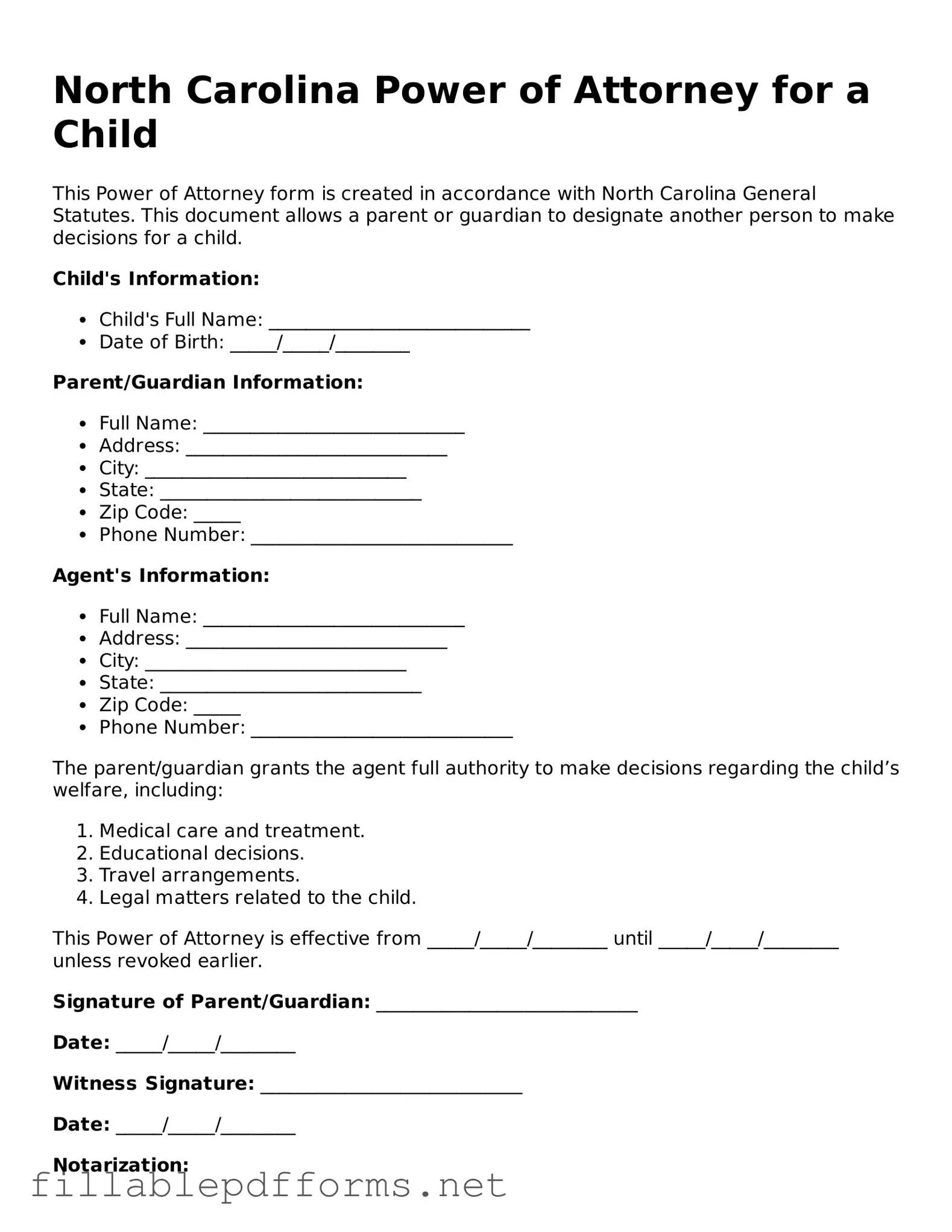Attorney-Verified Power of Attorney for a Child Form for North Carolina State
The North Carolina Power of Attorney for a Child form is a legal document that allows a parent or guardian to grant another adult the authority to make decisions on behalf of their child. This arrangement can be particularly useful in situations where the parent is temporarily unavailable due to travel, illness, or other circumstances. By using this form, parents can ensure that their child's needs are met while maintaining control over important decisions.
Launch Editor Here

Attorney-Verified Power of Attorney for a Child Form for North Carolina State
Launch Editor Here

Launch Editor Here
or
▼ Power of Attorney for a Child PDF
Almost there — finish the form
Complete Power of Attorney for a Child online fast — no printing, no scanning.